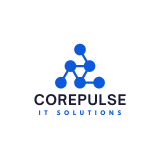Artificial Intelligence (AI) tools like ChatGPT, Copilot, and Gemini are increasingly being used by small and medium-sized business (SMB) employees in Australia. They promise productivity, speed, and cost savings — but when used without directions, they leave your company vulnerable to legal, security, and reputational issues.
In this article, we’ll look at the real dangers of workers using AI tools, provide case studies, and outline steps you can take to safely work with AI in your workplace.
Why Are Employees Working with AI Tools at Work?
A Time-Saving Shortcut
Workers are applying AI as a shortcut for writing, coding, customer support, and research. It’s time-saving — but unregulated, it’s dangerous.
What Are Some Common Ways Workers Use AI at Work?
- Writing emails and proposals
- Writing marketing copy
- Paraphrasing meetings or reports
- Writing code snippets or formulas
- Responding to customer queries

5 Biggest Dangers of Employees Using AI at Work
1. Incidents of Data Privacy Breaches
Staff may accidentally cut and paste sensitive or confidential information into AI software overseas. This could breach:
- The Privacy Act 1988 (Cth)
- Client contracts or non-disclosure agreements (NDAs)
- Internal data policies
Example: A team member pastes customer records into ChatGPT to “analyse trends”. That data is now stored outside your control.
2. Inaccurate or Faked Content
Generative AI tools have a tendency to “hallucinate” — creating facts, figures, or references that sound reasonable but are completely fictitious.
Example: A staffer uses AI to write a legal or compliance newsletter. The information is incorrect, making your business accountable.
3. Intellectual Property (IP) Risks
AI content, code, or images may unknowingly plagiarize copyrighted material — exposing you to copyright or IP infringement claims.
Illustration: AI creates a blog post that is virtually a copy of a competitor’s work. You risk getting a takedown notice or being sued.
4. Shadow IT and Unapproved Tools
As employees use AI platforms that have not been approved by your IT department, you relinquish data controls and open yourself up to potential malware, phishing, or insecure storage.
Example: An add-on in the browser quietly collects user data without consent or permission.
5. Over-Dependence and Degradation of Skills
Over-dependence on AI can lead to the degradation of basic human skills — particularly in writing, communication, and critical thinking.
Example: Copy/paste junior staff use AI replies without reviewing them, leading to generic or incorrect client communications.

Real-World Case Studies
Samsung Engineers Leak Sensitive Code
Example: Copy/paste junior staff use AI replies without reviewing them, leading to generic or incorrect client communications.
Melbourne Law Firm / Victorian Lawyers: Fake AI-Generated Citations
- What happened: A Melbourne law practice (Massar Briggs Law) and/or individual lawyers submitted court documents containing false or non-existent legal citations that were prepared by an AI tool. The documents were deemed unreliable. Read More
- Outcome: The court directed the firm / lawyer to pay legal costs; in some cases, lawyers faced professional sanctions (restrictions on their practice) for failing to verify the citations.
- Why it’s applicable: Especially relevant for SMBs in regulated or professional services sectors (e.g. law, accounting) where accuracy, authority, and trust are critical — highlights need for verification and oversight of AI-generated content.
Deloitte & Australian Government Report: AI Errors and Misleading Citations
- What happened: Deloitte used generative AI (including Azure OpenAI / GPT‑4) in drafting a report for an Australian government department. The report contained numerous factual errors, fake citations, misattributed sources, and even a fabricated court quote. TechRadar+1
- Outcome: Deloitte was required to revise the report, correct the errors, and partially refund the AU$440,000 contract. AP News+1
- Why useful: Shows that even large consultancies can make serious mistakes with AI tools when using them in external-facing, formal documents. Underscores reputational and financial risks.
Key Lessons
- Facts-checking comes first. Don’t make assumptions from AI-generated content. Always check for facts, quotes, cases law.
- Policies & training matter. Staff need to have instructions on what information to put into AI tools. Which tools are approved. How the review process works.
- Risk by sector. Regulated sectors (law, health, banking) have less room for maneuver than, say, internal marketing white papers, but miscalculation in any sector can lead to loss of confidence or worse.
- Cost + damage to reputation. Not just the cost (refunds, penalties, legal fees) but also harm to credibility.
- Audit and supervision. Regular audits / review can catch misuse early.

How to Manage AI Use in Your Business
1. Create an AI Use Policy
Define what tools are sanctioned, what information can be utilized, and when human consent is required. Specify that AI is an aid tool and never a replacement for human discretion.
2. Train Your People
Offer short training sessions to create awareness of:
- AI limitations
- Privacy risks
- Ethical use of AI tools
3. Use Secure, Business-Grade AI Tools
Choose platforms that:
- Comply with Australian privacy and data security laws
- Enable audit trails and admin controls
- Offer enterprise-level encryption and hosting within Australia
4. Monitor use of AI tools
Work with your IT provider or MSP to:
- Track usage of AI tools
- Identify risky or unauthorised access
- Update your cybersecurity strategy to include AI risks

Final Thoughts
AI can bring a competitive edge to an Australian SMB — but only responsibly. Without regulation, training, and oversight, employees’ AI use brings actual risk in data privacy, legal compliance, and reputation.
The solution is not banning AI — it’s regulating it.
By creating clear boundaries and building AI literacy in your company, you can exploit the power of AI while keeping your business safe, compliant, and in control.
Ready to Safeguard Your Business and Harness AI Securely?
At Corepulse IT Solutions, we understand the promise of AI — and the imperative to do so safely. Perhaps you need professional advice on IT security, IT support services, or customized advice on safe AI implementation for your small and medium-sized enterprise. We are here to help.
- Learn more about who we are and our commitment to Australian SMBs: About Us
- Discover our full range of services designed to keep your business secure and productive: Our Services
- Find out how our IT support can give your team the confidence to work smarter and safer: IT Support
- Protect your data and reputation with our industry-leading IT security solutions: IT Security
Have questions or want to discuss how we can help your business manage AI risks effectively?
Get in touch today for a personalised consultation: Contact Us


